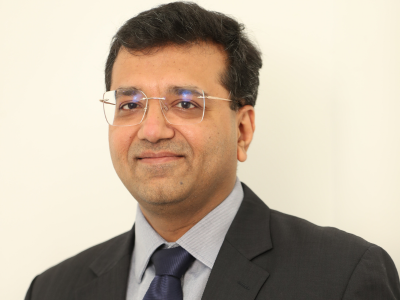Listen to this article
How will the current tension between India and Pakistan affect the RBI policy?
India’s total trade with Pakistan accounts for less than 0.06 % of its overall trade, which is not a significant size to have an impact on macro-economic situation in India. However, escalation of the current tension between India and Pakistan may impact economic activity leading to RBI loosening the monetary policy even further.
What is your short-term outlook on debt markets?
We expect to run a portfolio duration close to the higher end of the mandated range for respective funds. This is based on our view that rates can come down lower given that inflation adjusted real rates are still in positive zone.
The portfolios are positioned to actively benefit from the spreads between G-Secs, SDLs and corporate bonds.
We are also expecting further steepening of the yield curve and expect spread between money market rates and overnight rates to compress further.
Baroda BNP Paribas Mutual Fund uses credit allocation and duration management to generate alpha. Can you explain how this investment philosophy is executed?
Our Investment strategy is a two-pronged process wherein we bifurcate between a long term and short-term strategy for the portfolio depending upon the mandate of the portfolio. The portfolio is bifurcated between core and tactical strategy which encompasses both duration and credit strategy. The core portfolio reflects majority part of the portfolio, which reflects our long-term call/view on interest rates, credit spreads and credit worthiness and our tactical portfolio which is a smaller allocation relative to core portfolio superimposes on long term strategy on any of the parameters like Interest rate and spreads over a short-term horizon. The core allocation is our major source of return for the portfolio whereas the tactical allocation endeavours to generate alpha in the overall portfolio.
Which category of fixed income funds should MFDs recommend to their clients?
Given the fixed income scenario, MFDs may consider mid-to-long-term duration products preferably products with higher weightage to corporate bonds. Rates reduction as well as surplus liquidity may not only soften the interest rate curve but also compress the corporate bonds spreads
What are the things that fund managers should keep in mind while trying to navigate debt markets?
At Baroda BNP Paribas Mutual Fund, we have a SLR philosophy which is safety, liquidity and returns. Our investment strategies revolve around the same principle. Our endeavor is to keep our portfolio very liquid with carefully appraised credits to provide competitive risk adjusted returns.
Only a handful of fixed income funds beat their respective benchmarks. Why does this happen and why do you think investors should continue with actively managed debt funds?
In Indian fixed income markets, debt funds are mostly compared within peers rather than the benchmark due to practical reasons.
Actively managed debt fund changes the characteristics of the fund dynamically subject to evolving market conditions, which might be suitable from an investor perspective. Investors normally prefer maximum diversification, less tax instances and better liquidity due to which they normally stick to their investment in an active debt fund, leaving it to the fund house to suitably change parameters. For e.g. in the current situation, there is a good possibility of parallel downward movement in rates followed by steepening and spread contraction in spreads and credits for any debt fund to generate returns. Any active fund would at the right point in time move the allocation accordingly to benefit from the market opportunities.






